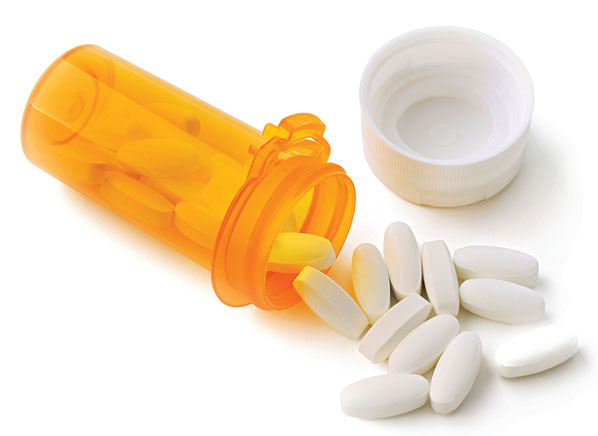Beta-Blockers and Impotence: Avoiding Complications
Get ready to side effects whatever prescribed medications you administer. The reality is such that most medications cause either minor or major negative reactions even when the chosen dose is correct. Your body just needs more time to get used to new chemicals in blood. But when the drugs lead to erectile dysfunction in males, waiting through is never a correct step to make.
Blood Pressure Meds and Their Effects on Male’s Strength
There are different types of blood pressure medications. They have much in common, yet differences are also present. Generally speaking, they help lower the blood pressure inside the blood vessels, thus easing the work of one’s heart when pumping the blood.
Risks after their administration may be diverse, but erectile dysfunction is the one that usually bothers males the most. The decrease of blood flow may result in poor erections or their absence. It also interferes with ejaculation greatly.
There are three types of blood pressure meds that can trigger such outcomes:
- Alpha-blockers;
- Diuretics or water pills;
- Beta-blockers.
Though diuretics don’t interfere with the flow of blood directly, they always increase the excretion of zinc in the body, which eventually influences the production of testosterone.
As to the beta-blockers, they decrease satisfaction from sex by:
- Reducing levels of testosterone in the body;
- Interfering with nerve impulses;
- Making a male feel depressed and rather sedated.
If there is a beta-blocker that leads to the above-mentioned complications, you can talk to your healthcare provider about the chances to switch of to another medication of the same type, yet will lower effects on erections and sexual life.
How Do Most Beta-Blockers Work?
The half of an explanation is hidden in their name. Beta-blockers block the transmission of impulses of some nerves. There are nerves with the ends that release neurotransmitter – noradrenaline – during nerve stimulation. The chemical is responsible for stimulating the beta-adrenergic receptors – very small structures on cells of various body parts: blood vessels, heart and brain. If the receptors are properly stimulated, they may lead to the increase of heart rate. Beta-blockers prevent overstimulation normalizing the heart rate and blood pressure.
A user may experience very different adverse reactions. The most common side effects include dizziness and fainting that are triggered by a lowered heart rate. When the blood vessels get narrowed, a male will look paler than usually and will definitely experience cold in fingers and toes. Is erectile dysfunction a regular outcome? Not really. If beta-blockers are administered regularly in extremely high doses, then impotence can become a possible result.
The condition of impotence caused by beta-blockers will be accompanied with nausea and even vomiting, serious allergic reactions and respiratory issues. There are pretty high risks of broncho spasms, because of the effects on beta-receptors found in the lungs. If you suffer from asthma or any other airways-related disorder, take extra care when administering these prescribed meds.
If any of these adverse reactions is left neglected or taken for granted, it can result in serious health issues and inevitable complications for male’s health and sexual activity.
A Huge BUT
Though beta-blockers along with diuretics can decrease the flow of blood to the penile area as well as block nerve impulses and lead to arteries constriction and erectile dysfunction, they don’t affect all males. In most cases diuretics make kidneys flush out the excess amount of water and salt buildups through urine. This is how they cope with high blood pressure both in males and females.
Beta-blockers will block hormones (adrenaline mainly) to slow down the heart rate and decrease the force at which the blood is pumped. They will add to the blocking of angiotensin II. It’s the hormone, which comes from kidneys. This is how the meds make blood vessels more relaxed and wider to improve the blood flow instead of restricting it.
Can You Prevent Negative Effects of Beta-Blockers?
Neither you nor your healthcare provider can predict whether beta-blockers will add to the development of erectile dysfunction in your case. All hopes are on you: if you happen to notice the slightest changes or impotence signs and symptoms, talk to your healthcare provider. He will choose a proper treatment, depending on the severity of sexual side effects as well as blood pressure complications that beta-blockers are supposed to treat.
Get ready to have some complications when getting rid from other health disturbances. It is a typical outcome in most cases. The question is how you’ll manage to cope with both diseases.


